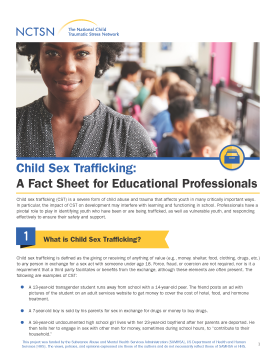
Child Sex Trafficking: A Fact Sheet for Educational Professionals
Offers information regarding child sex trafficking to educational professionals.
The following resources on child trauma were developed by the NCTSN. To find a specific topic or resource, enter keywords in the search box, or filter by resource type, trauma type, language, or audience.

Offers information regarding child sex trafficking to educational professionals.
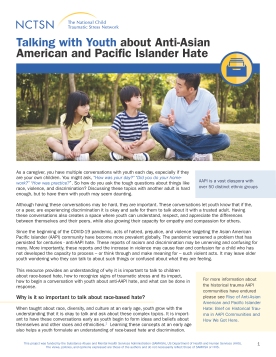
Provides an understanding of why it is important to talk to children about hate-based violence against AAPI communities, how to recognize signs of traumatic stress and its impact, how to begin a conversation with youth about anti-AAPI hate, and what can be done in response.
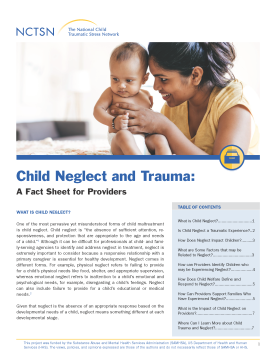
Offers child-serving providers information about child neglect and trauma.
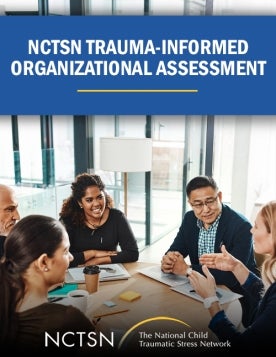
Helps organizations assess their current practices in the context of serving children and families who have experienced trauma. It is an important part of an organizational transformation process to create trauma-informed organizations.

Outlines different considerations that school personnel need to take into account when working with refugee youth and their families. This fact sheet describes the school, classroom, individual, and family considerations that school staff should understand when working with this population.
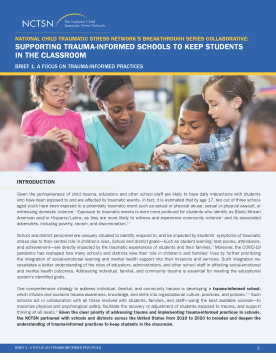
This brief includes a look at the six essential domains developed and addressed as part of the Collaborative Change Framework...
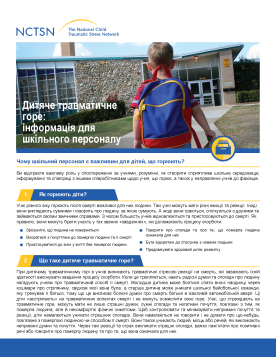
Offers information on why school personnel are important for grieving students.

Outlines different considerations that school personnel need to take into account when working with refugee youth and their families. This fact sheet describes the school, classroom, individual, and family considerations that school staff should understand when working with this population.
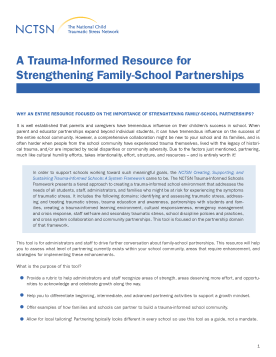
Helps schools assess what level of partnering currently exists within their school community, areas that require enhancement, and strategies for implementing these enhancements. This tool is for administrators and staff to drive further conversation about family-school partnerships.
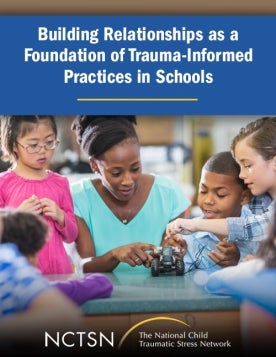
Highlights useful strategies for and classroom examples of relationship-building and its positive impact on trauma-informed practice change in schools.
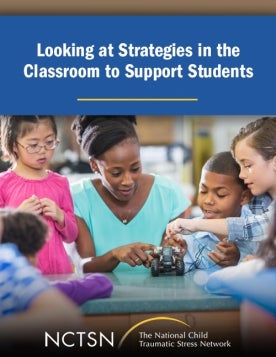
Shares principles and examples of creating meaningful changes in the classroom that form an environment where children feel safe and willing to take risks.
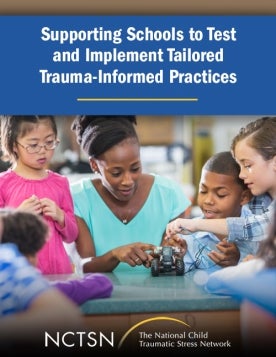
Highlights key components of the NCTSN Breakthrough Series Collaborative (BSC) for Supporting Trauma-Informed Schools to Keep Students in the Classroom.